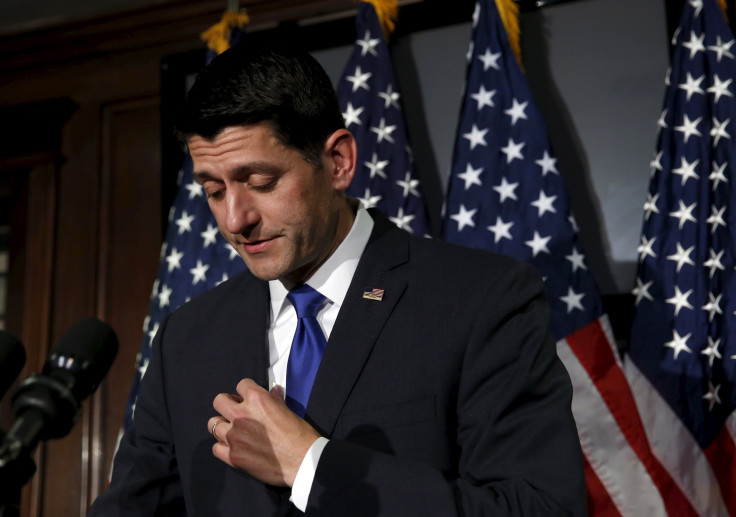Paul Ryan Deprives Big Republican Donors Of A Standard-Bearer At The 2016 Convention

Few people have had to try harder than Paul Ryan to not run for president. On Tuesday, the House speaker once again said he will not accept the 2016 Republican nomination.
His refusal probably dashes any lingering hopes that the GOP's donor class will have unified around a single candidate going into the party's national convention in July. Ryan has long been a cause célèbre among both Washington establishment figures and the more extreme libertarian wing of the donor base; if he won't let them rally to his standard, they're left without an obvious alternative.
It now looks increasingly likely that Donald Trump will retain a delegate lead going into the convention while still falling short of the 1,237-delegate majority he needs to avert a brokered convention. There have been rumors circulating for weeks that Ryan, despite his repeated denials, would emerge as the nominee in that event.
First, John Boehner — Ryan's predecessor as House speaker and a longtime Washington politician associated with the party's centrist wing — floated Ryan as the best choice for a divided convention. Then, this month, the Huffington Post reported that a source close to influential GOP mega-donor Charles Koch had said Koch wants Ryan as the nominee.
Charles Koch and his brother David, who together run one of the most influential political donor networks in the country, have been Ryan fans for years. With their support and a vote of confidence from establishment figures like Boehner, Ryan might have been a strong contender at a negotiated convention, where backroom maneuvering and offers of patronage count for more than stump speeches and media attention.
But without Ryan, the convention goes back to being a probable three-way contest between candidates who have thus far divided the party. Both sitting officials and influential donors have said they will support Trump if he becomes the nominee, but he is still widely loathed enough that conservative groups have spent millions of dollars trying to halt his ascent. One recent New York Times report found that more than half of all negative-ad spending in this campaign cycle has gone to crafting and broadcasting anti-Trump messages.
The next runner-up behind Trump is Texas Sen. Ted Cruz, whose team has excelled in picking up delegates through the sort of old-fashioned brokering tactics that would be necessary at a convention. But he has failed to secure the loyalty of billionaire power broker Sheldon Adelson and other major donors, who have mostly stood by and waited for the primary battle to work itself out.
The convention will likely be another opportunity for those donors to make their desires known. But with Ryan apparently out of the running, it's not at all clear who will be the object of their desires.
© Copyright IBTimes 2025. All rights reserved.






















